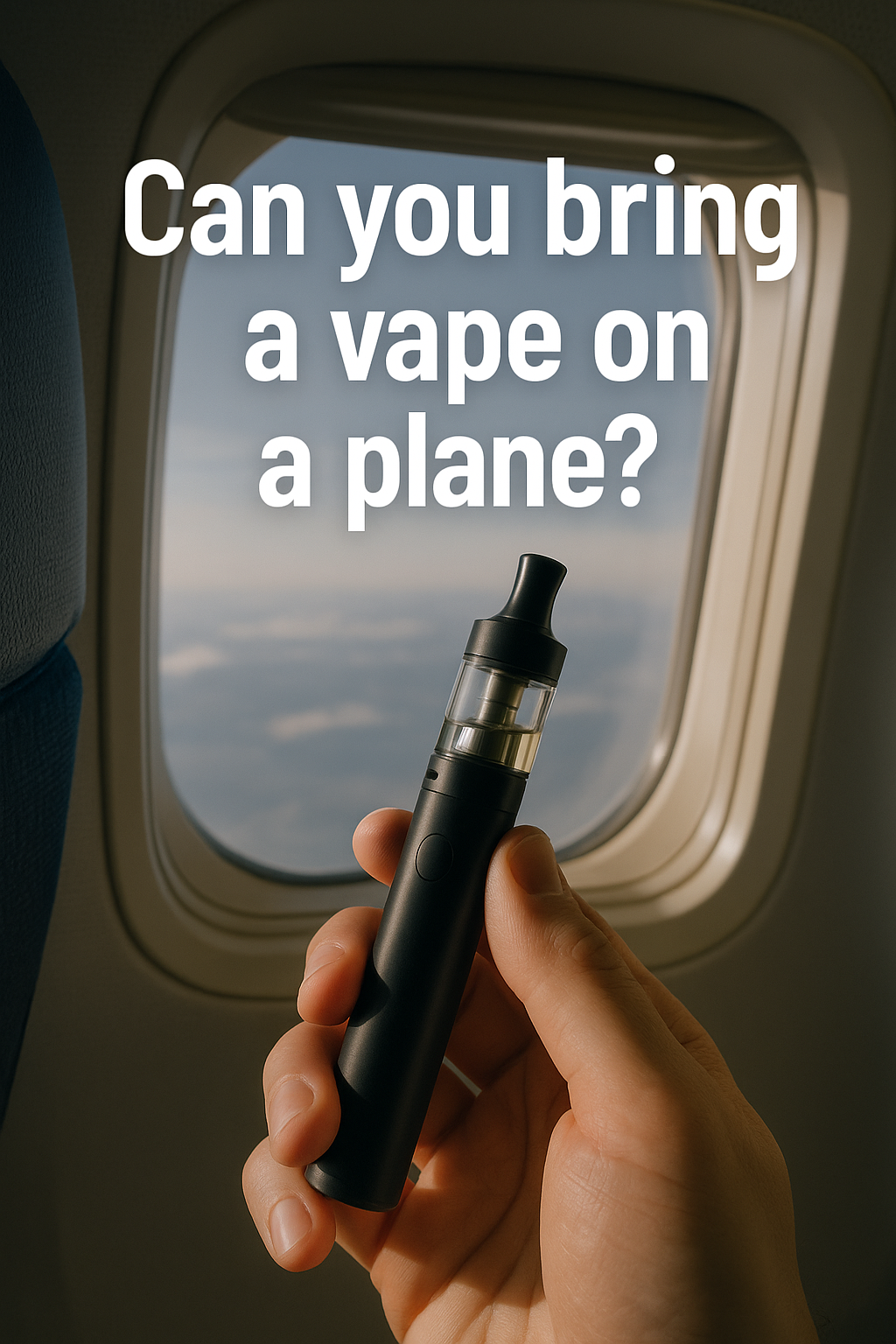
ARE YOU OF LEGAL VAPE AGE?
Please confirm that you are of legal age to purchase vaping products to access our site.

Please confirm that you are of legal age to purchase vaping products to access our site.
Some items are no longer available. Your cart has been updated.
This discount code cannot be used in conjunction with other promotional or discounted offer.
In recent years, vape have surged in popularity as a modern alternative to traditional tobacco products. With their compact design, diverse flavors, and affordable pricing, devices like Vapepie have attracted a growing number of users. Many enthusiasts believe that national smoking bans and tobacco control measures do not apply to vape. So, can airline passengers carry vape into the cabin? The answer is yes, but permission to carry does not equate to permission to use.

Vape, despite not requiring an open flame, still produce vapor that can pollute the cabin environment. Aircraft operate at altitudes of around 10,000 meters, where the cabin space is confined and relatively sealed. Using an vape could trigger smoke detectors, leading to alarms and disruptions to normal flight operations. Moreover, the aircraft cabin is a public space, and the aerosols generated by vape—such as those from popular brands like Vapepie—contain numerous toxic and harmful substances, potentially affecting other passengers adversely. This behavior is inherently inconsiderate and unethical.
Instances of unauthorized vape use on flights have occurred and are on the rise. Earlier this year, on a flight from Sanya, Hainan, to Beijing, passenger Yao used an vape during descent. Cabin crew intervened promptly and alerted authorities. Yao claimed she missed the in-flight no-smoking announcement and was unaware that vape were banned on planes. She assumed that passing security with the device meant it could be used onboard. Upon landing, she received a 7-day administrative detention from the Capital Airport Public Security Bureau.
In May, Changsha Airport security discovered a passenger carrying a novel electronic cigarette lighter resembling an vape, both classified as electronic ignition devices. "This electronic lighter operates similarly to an vape, and some sellers may mislead buyers by claiming it's allowable on flights," noted a Changsha Airport security staff member. Such devices are explicitly prohibited by civil aviation regulations.
According to the Capital Airport Public Security Bureau, the "Announcement by the Civil Aviation Administration of China and the Civil Aviation Public Security Bureau on Maintaining Order in Civil Aviation and Ensuring Aviation Transport Safety" explicitly lists "smoking (including vape)" as a prohibited activity inside aircraft. Violations may result in warnings, fines, or detention under the "Regulations of the People's Republic of China on Civil Aviation Security." In cases constituting a crime, criminal liability will be pursued under the "Criminal Law of the People's Republic of China." Additionally, offenders are liable for any property damage caused to individuals or entities.
Industry experts emphasize that prohibiting vape use in the cabin is essential for aviation safety. vape, including models from Vapepie, rely on lithium batteries, which pose significant explosion risks onboard. Some products lack proper structural safeguards, such as battery protection circuits, increasing the likelihood of explosions during high-power discharge and directly threatening flight safety.
While vape can be carried onboard, they must comply with civil aviation rules. As explained by Jilin Airport security personnel, devices using lithium-ion batteries must not exceed 100 watt-hours in rated energy, and those with lithium metal batteries must contain no more than 2 grams of lithium.
A secure, healthy, and orderly onboard environment requires collective effort from all passengers. Travelers must adhere to regulations; if unsafe behaviors like smoking are observed, inform the cabin crew immediately. Smoking (including vape) is strictly forbidden in areas such as aprons, terminals, jet bridges, and shuttle buses. For those needing to smoke, use designated smoking areas within the terminal building. Avoid risking penalties and spoiling an otherwise enjoyable travel experience by flouting the rules.

Comment